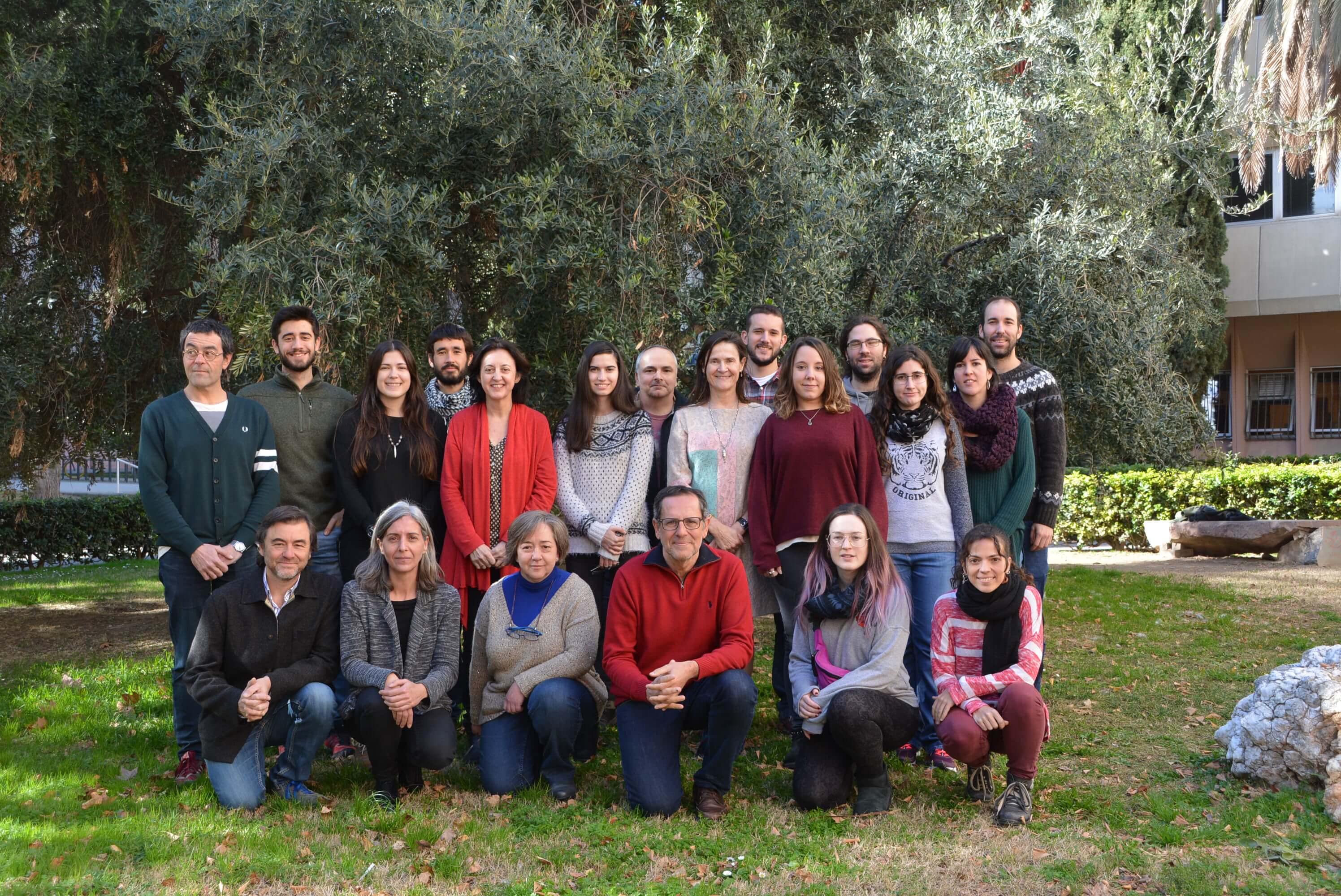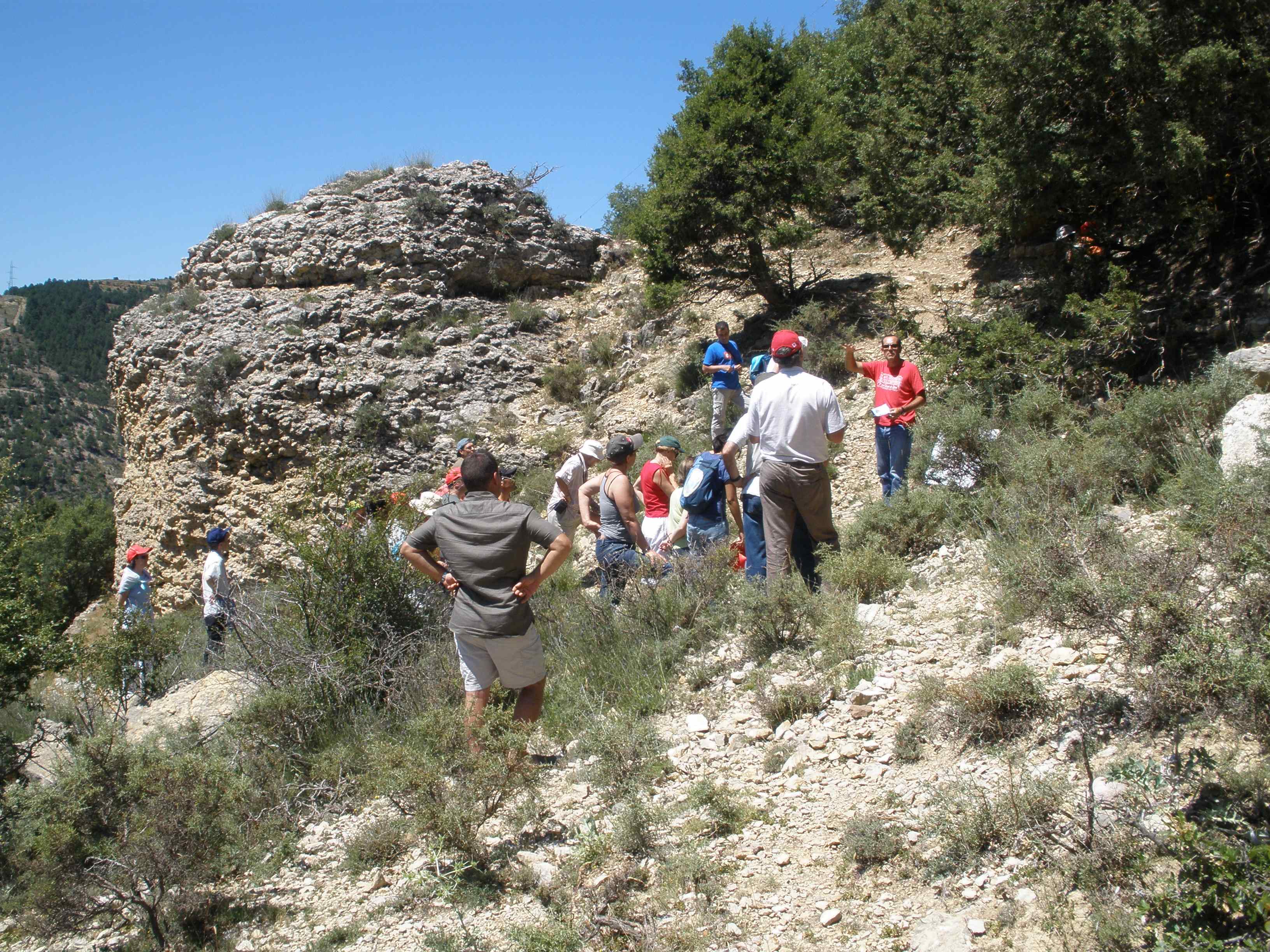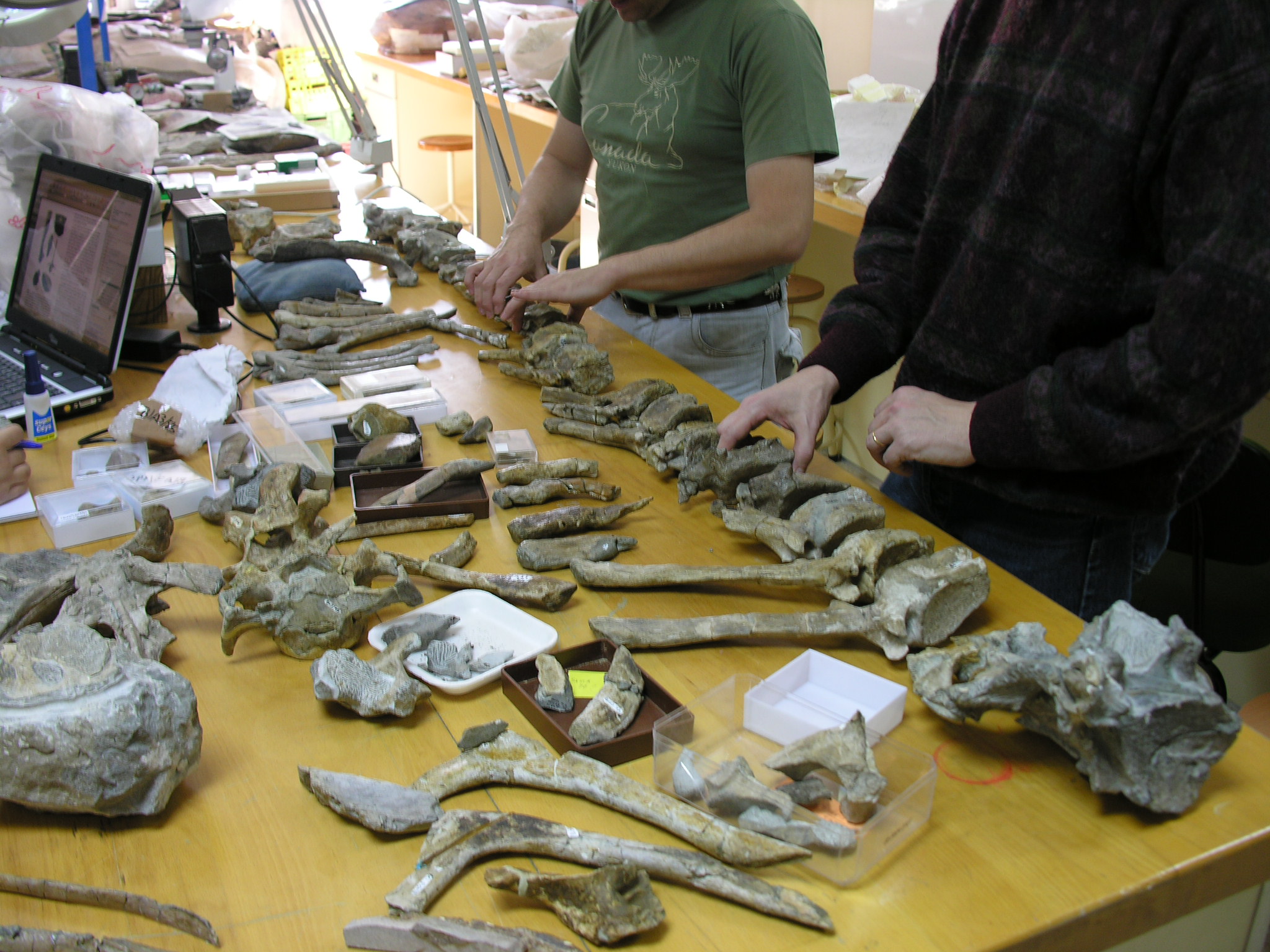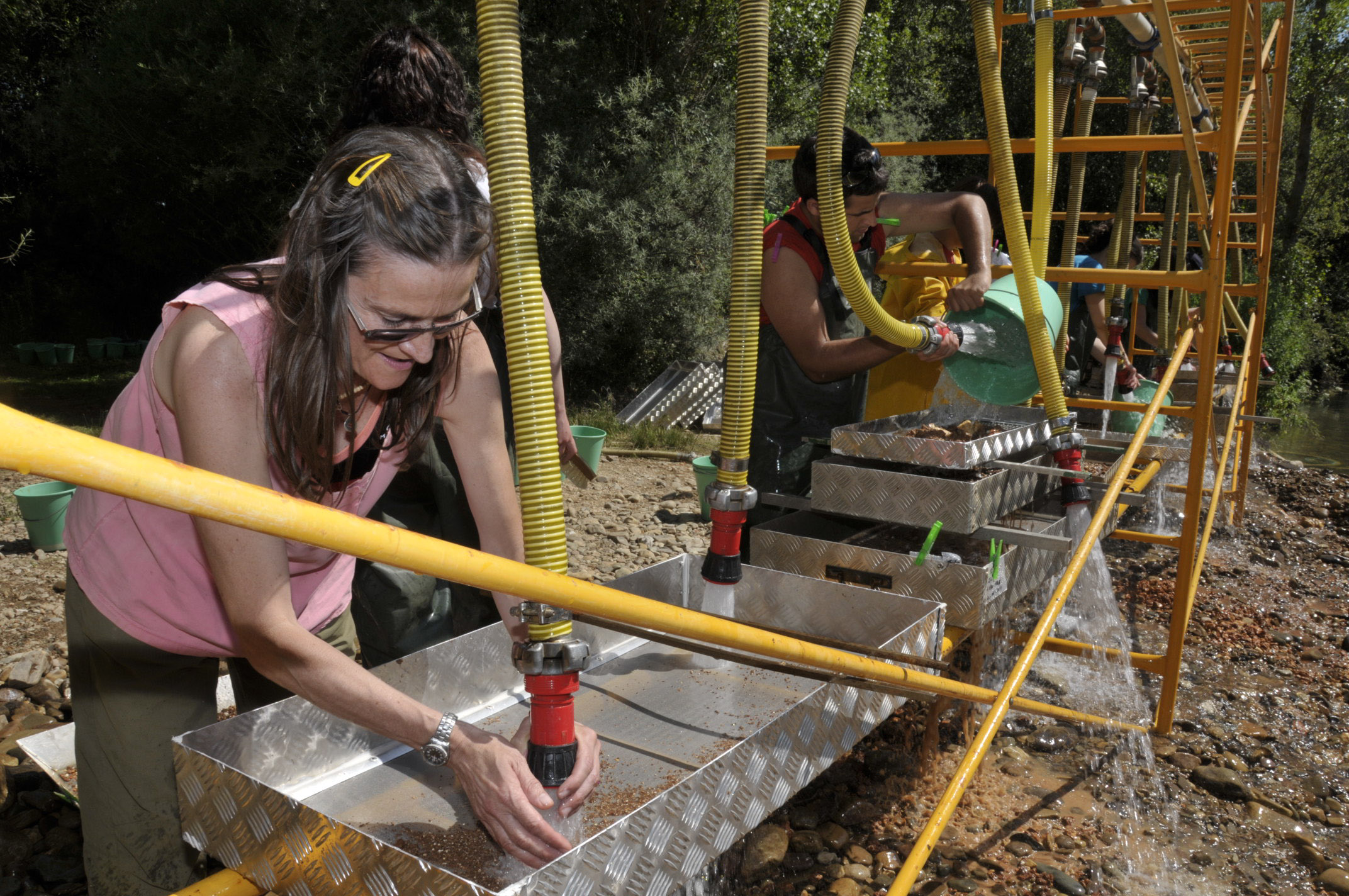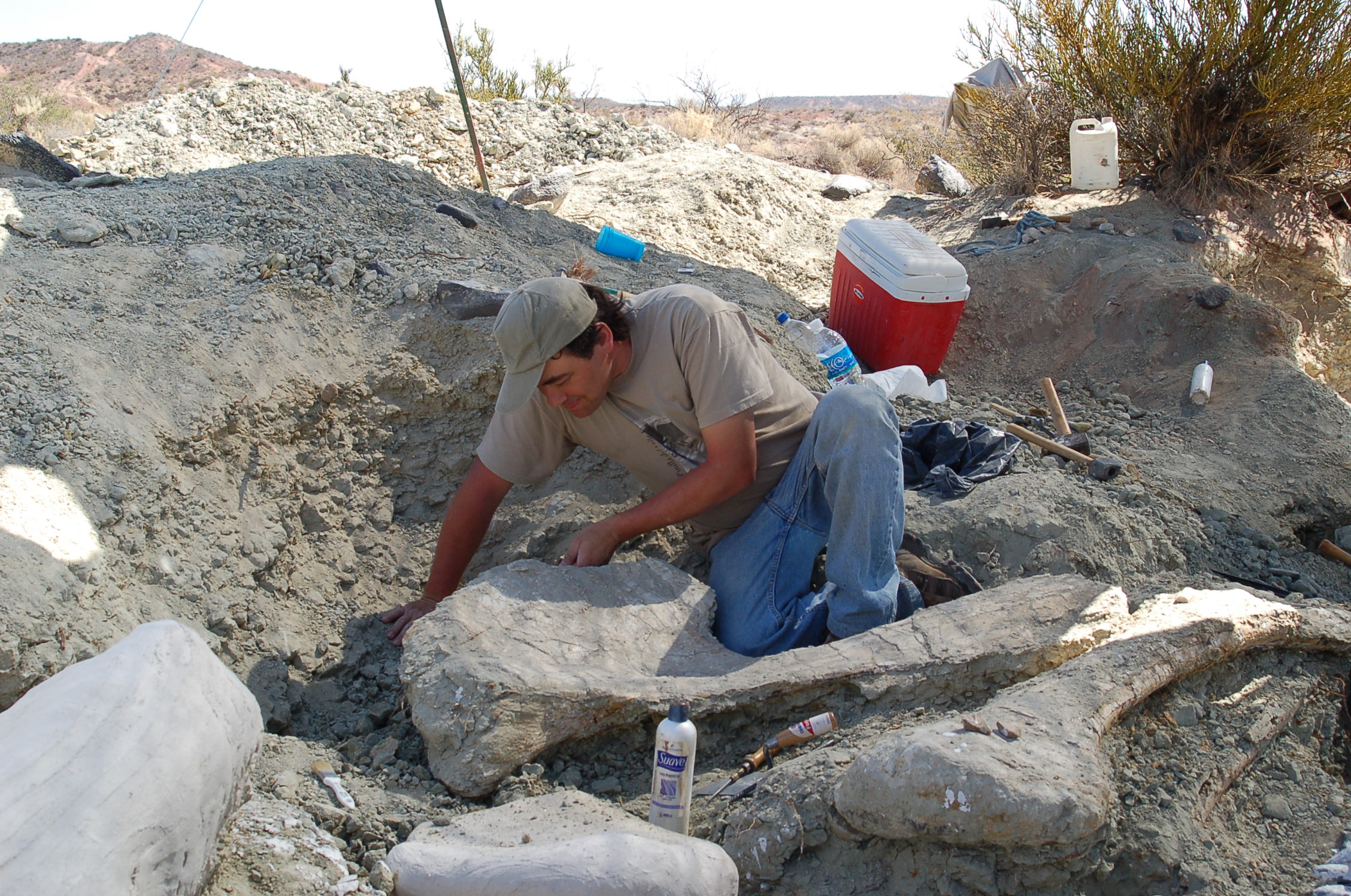Presentation
The aim of ARAGOSAURUS is to reconstruct the environments of the past on the basis of their geological, mineralogical and palaeontological record, as a means for understanding present-day ecosystems and proposing future scenarios.
The main study area is Spain, since within a small geographical area the geological record of the last 500 million terrestrial years is represented, with a variety of terrestrial and shallow marine ecosystems that make it a natural laboratory for understanding its evolution through space and time.
As well as using the basic work techniques of geology, palaeontology and mineralogy such as optical microscopy, the research group is highly dynamic in its use of modern technologies such as photogravimetry, synchrotron radiation, high-resolution electron microscopy, spectroscopy, CT scans, stable isotope analysis of carbon, oxygen and strontium, geometric morphometry and ancient DNA analysis. This has enabled us to achieve novel results at an international level.
Lines of investigation
The team is publishing articles on, and seeks to maintain its interest in, the following specific themes:
- The marine platforms of the Jurassic; organic productivity, record of climate changes, and use as analogues for hydrocarbon reservoirs
- Continental and transitional environments and the changes in climate and palaeobiodiversity of the Jurassic-Cretaceous boundary, and their importance at a global level
- The tropical world of the Lower Cretaceous; palaeobiodiversity of dinosaurs; the soils as climatic indicators and as geological resources of strategic interest
- Palaeobiogeography as a factor in the dispersal of organisms
- The Cretaceous-Palaeogene boundary extinction
- The Palaeocene-Eocene thermal maximum and the marine and continental ecosystems of the Eocene
- Climatic and environmental changes in ecosystems with humans and their role in present-day changes in biodiversity
- Evolution and phylogeny of the mammal species of the Quaternary and the present; morphometry and DNA
- 3-D modelling of fossils by means of computer tomography and synchrotron
Projects undertaken
ARAGOSAURUS has been researching into ecosystems with fossil vertebrates for more than 25 years. The results of these investigations are found in many innovatory products in the field of geological and palaeontological tourism. One might cite in this context: the Aren Museum of Dinosaurs (‘The Last Dinosaurs of Aren’), the Tella Cave Bear Museum, the Cultural Park of Río Martin, the Dinosaur Route of Soria, the Natural Science Museum of the University of Zaragoza, and the Atapuerca project. The group is multidisciplinary in that it reconstructs ecosystems by means of palaeontology, stratigraphy, sedimentology and mineralogy, in conjunction with the study of vertebrates and invertebrates and the interpretation of the sedimentary environment. This will make it possible to assess the impact of humankind in the Anthropocene with a view to conserving biodiversity in the future.
The scientific impact of the results obtained is corroborated by several hundred scientific publications, more than 200 of which are in SCI journals.
Aragosaurus takes part in national and international congresses, has contributed more than 300 communications to national and international conferences, and organized more than a score of congresses.
In addition, it has achieved outreach to the general public through some 200 public conferences and in more than 20 popular books and articles.
Aragosaurus actively maintains its webpage: http://www.aragosaurus.com/.
Infrastructure
- Equipment required for stratigraphic and sedimentological analysis (Area of Stratigraphy)
- Equipment required for the excavation, preparation and study of the fossil remains of vertebrates and microvertebrates (Area of Palaeontology)
- Laboratory of the Faculty of Sciences of the University of Zaragoza, with all the relevant journals
- Research support services of the University of Zaragoza
- Ancient DNA laboratory in the University Institute of Research into Environmental Sciences (IUCA)
- Services of specialized businesses.
Technological Offer/Services
- Geological cartography and stratigraphic and sedimentological sequences
- Applied research in prospecting for hydrocarbons in carbonate reservoirs
- Conservation and outreach activity on the geological and palaeontological heritage
- Consultancy in vertebrate palaeontology
- Consultancy in the dating and environmental reconstruction of stratigraphic sequences of archaeological and palaeontological sites
- Mineralogical studies using X-ray diffraction and electron microscopy
Noticias del Grupo
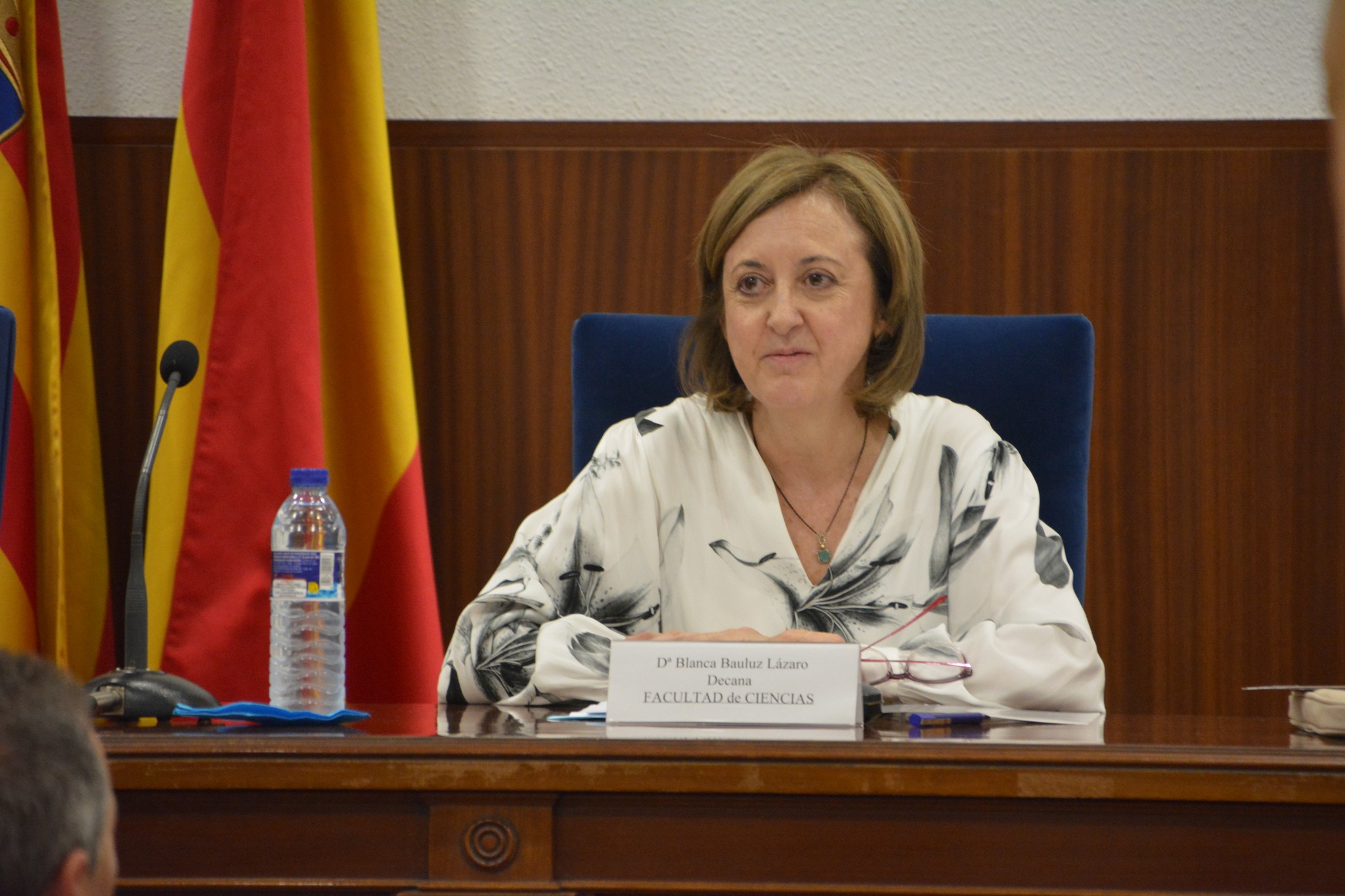
Blanca Bauluz takes office as Dean of the Faculty of Sciences
(Zaragoza. Wednesday, July 2, 2025). On Tuesday, July 1, the solemn inauguration ceremony of Dr. Blanca Bauluz Lázaro as Dean of the Faculty of Sciences was held in the Sala de Grados. The ceremony was presided over by the Rector of the University of Zaragoza, Dr. Rosa María Bolea Bailo, and attended by Mr. Javier […].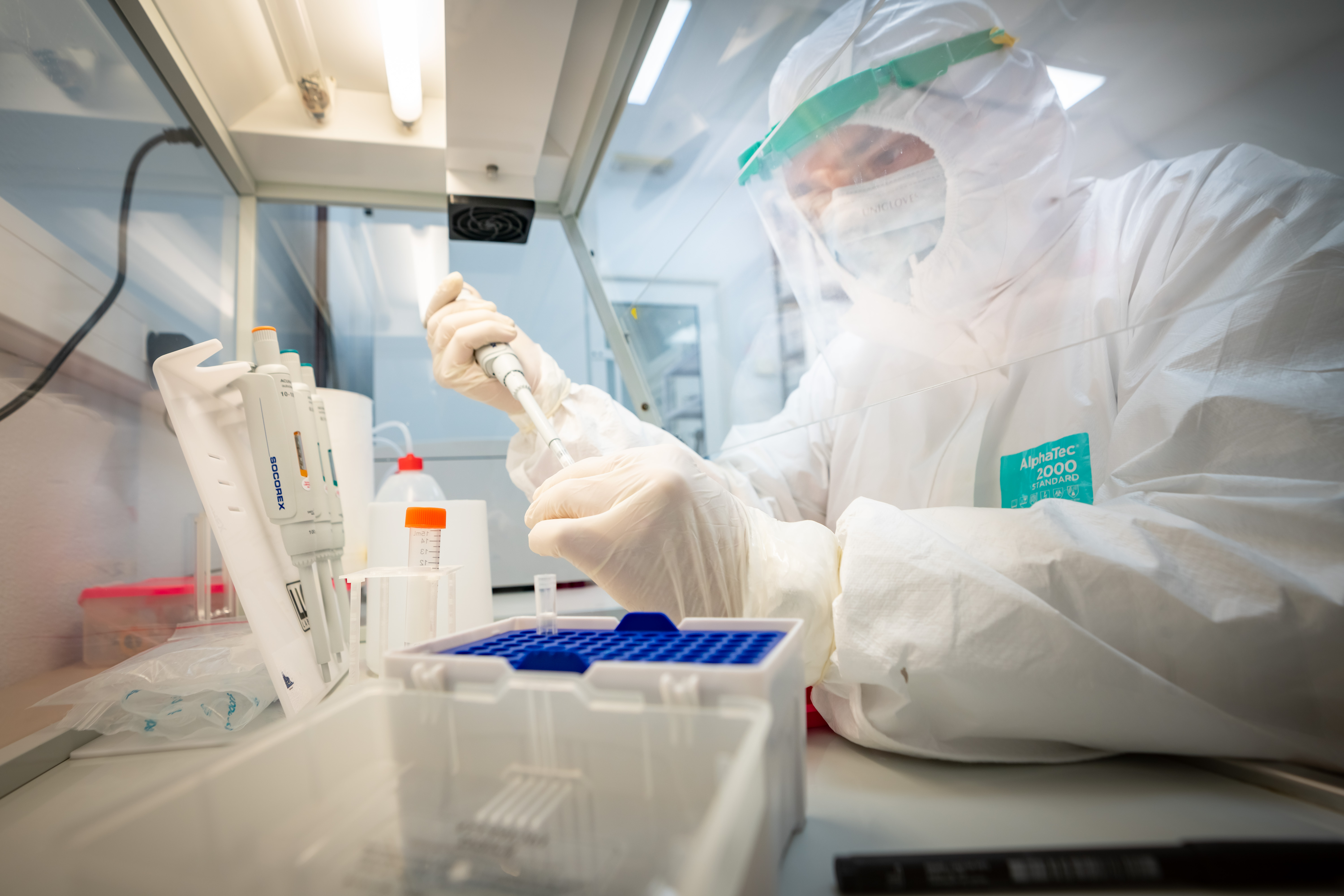
The second edition of the “Stories of the Earth” series concludes with over 1,300 attendees in on-site and online formats.
(Zaragoza. Friday, 27 June 2025.) The Instituto Universitario de Investigación en Ciencias Ambientales de Aragón (IUCA) concluded the second edition of the “Stories of the Earth” lecture series on 18 June. This science‑outreach initiative traveled across all three provinces of Aragon during the 2024–2025 academic year, aiming to bring the institute’s research closer to the […].
Bringing Back Extinct Species? Science, Ethics, and DNA Take Center Stage at the Latest “Stories of the Earth” Event This Wednesday in Zaragoza
(Zaragoza, Monday, 16 June 2025). Is it possible to bring extinct species back to life? And even more importantly: does it make sense to do so from an ecological and ethical perspective? This Wednesday, 18 June 2025, the Ibercaja Xplora Space will host the talk “De-extinction: Can —and Should— We Bring Back Extinct Species?” by Pere […].
Spanish Geology Faculties Warn of the Consequences of Scientific Downgrading in the LOMLOE and Call for Greater Curricular Presence
Zaragoza, June 3, 2025. The university faculties that offer Geology degrees in Spain have issued a joint statement expressing their “deep concern” about the decline of scientific subjects —especially Geology— in secondary education, in the context of the curricular reforms introduced by the Organic Law for the Modification of the Education Law (LOMLOE). At the […].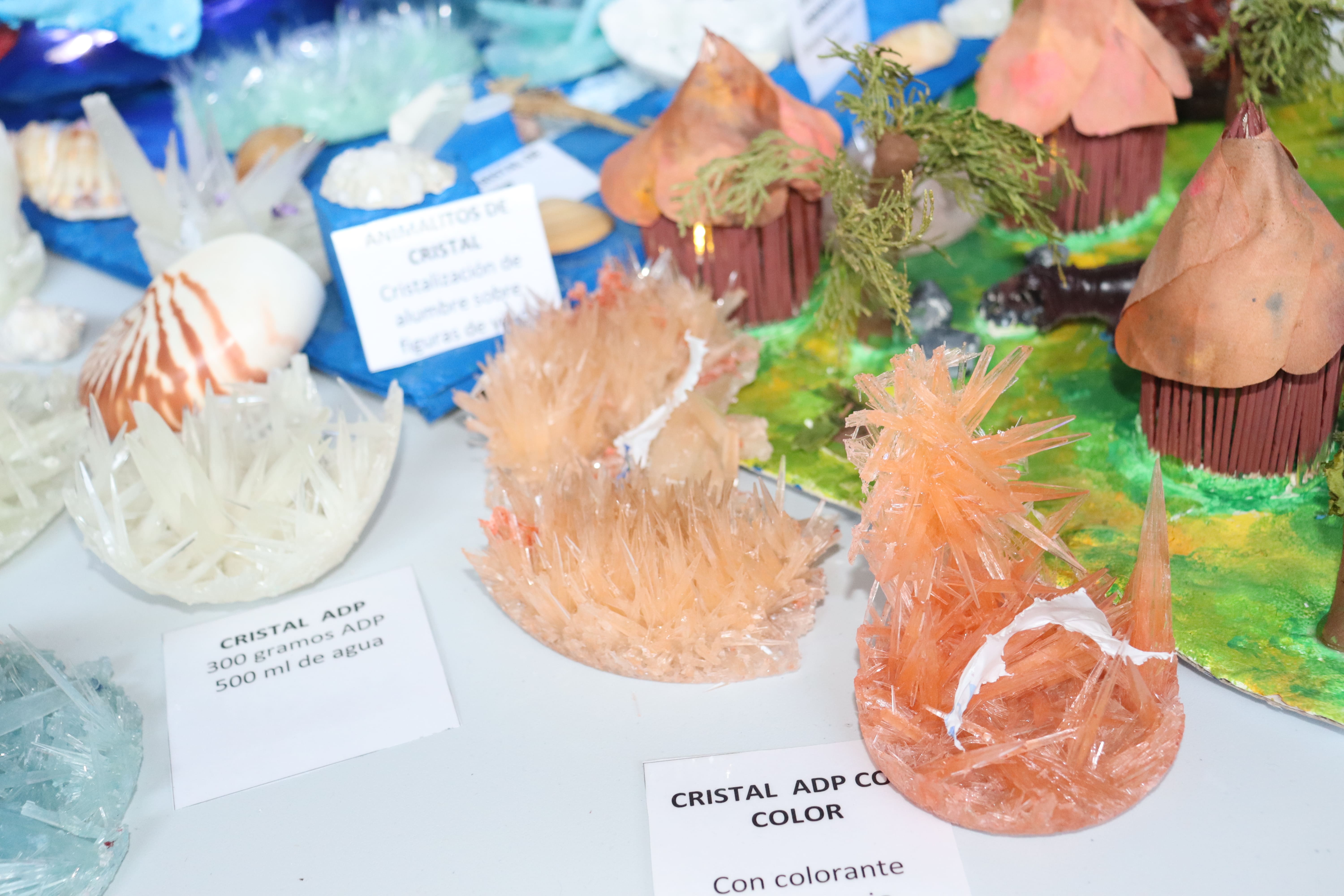
Final of the 11th Edition of the Crystallization in Schools Contest in Aragon
(Zaragoza, Thursday, May 8, 2025). The final of the 11th Edition of the Crystallization in Schools Contest in Aragon will take place on Friday, May 9, 2025, at the University Sports Pavilion. The contest is organized by the Faculty of Science and the Faculty of Education of the University of Zaragoza, the Institute of Chemical Synthesis […].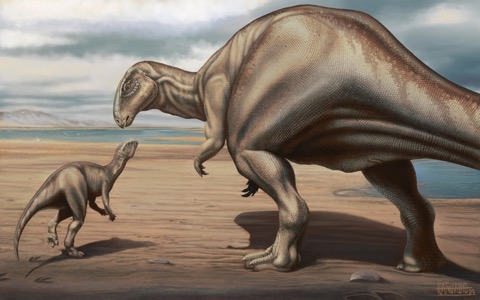
A new herbivorous dinosaur discovered in Portugal confirms the rich diversity of Late Jurassic ecosystems.
(Zaragoza, Spain / Torres Vedras, Portugal, Friday, April 4, 2025). The rich paleontological heritage of the Lusitanian Basin has just expanded with the discovery of a previously unknown species of iguanodontian dinosaur that lived in what is now Portugal nearly 150 million years ago. This finding, which involved paleontologists from the Aragosaurus-IUCA research group at […].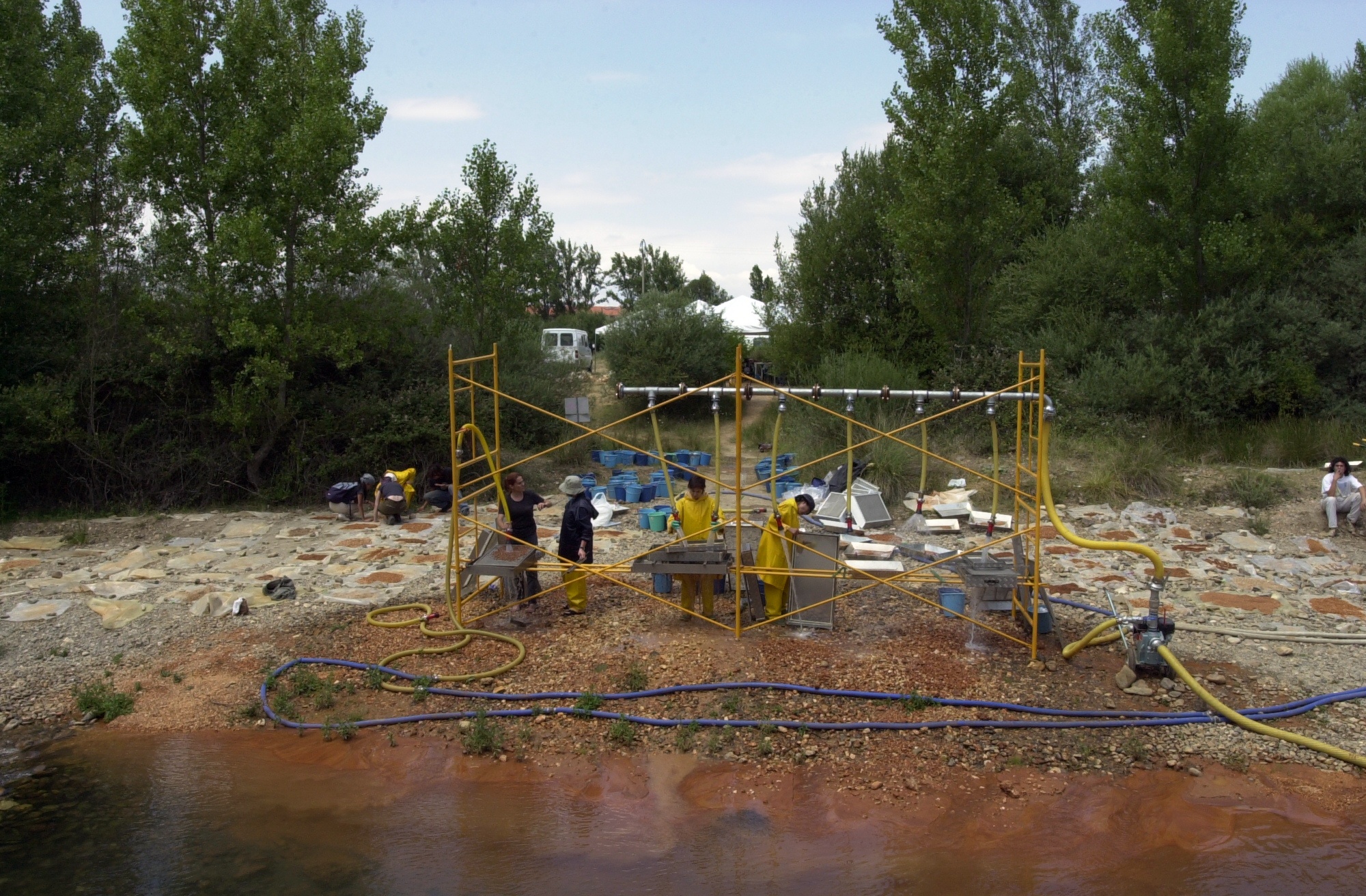
Professor of Paleontology Gloria Cuenca to analyze Quaternary climates and landscapes in the Iberian Peninsula next tuesday at Paraninfo
(Zaragoza, Friday, January 10, 2024) – For over three decades, the University of Zaragoza has been studying the climatic and landscape changes of hominins, including ancient ancestors like Heidelbergensis, Neanderthals, hunter-gatherer humans, the first farmers, the first herders, and modern humans who inhabited the Iberian Peninsula from about 1.5 million years ago to the present […].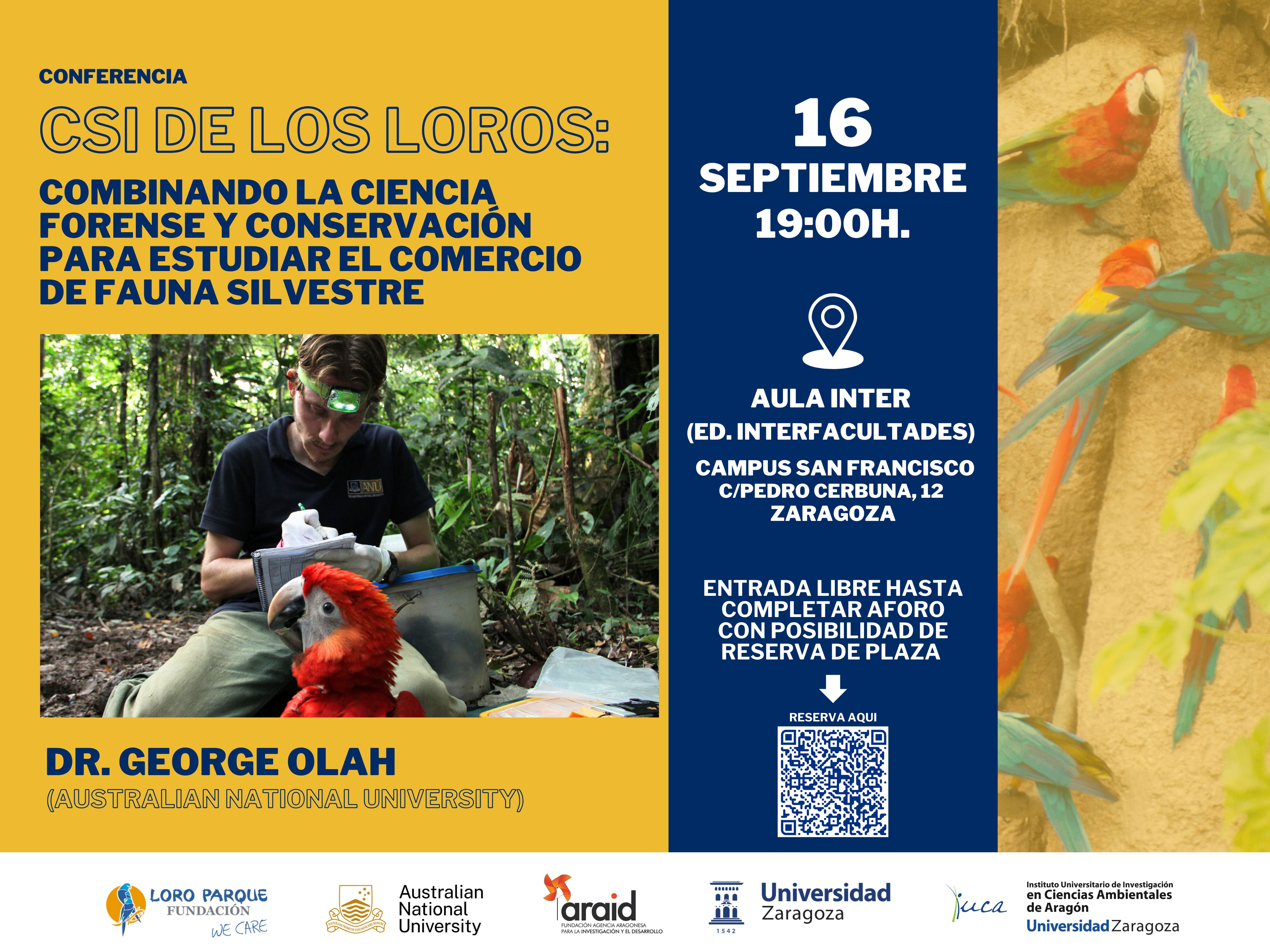
“CSI of Parrots: Combining Forensic Science and Conservation to Study the Wildlife Trade”
(Zaragoza. Thursday, September 5, 2024). On Monday, September 16, at 7:00 p.m., the lecture “CSI of Parrots: Combining Forensic Science and Conservation to Study the Wildlife Trade” will be delivered by Dr. George Olah (Australian National University) at the INTER ROOM (Interfacultades Building, San Francisco Campus, University of Zaragoza). Admission is free, but seating is […].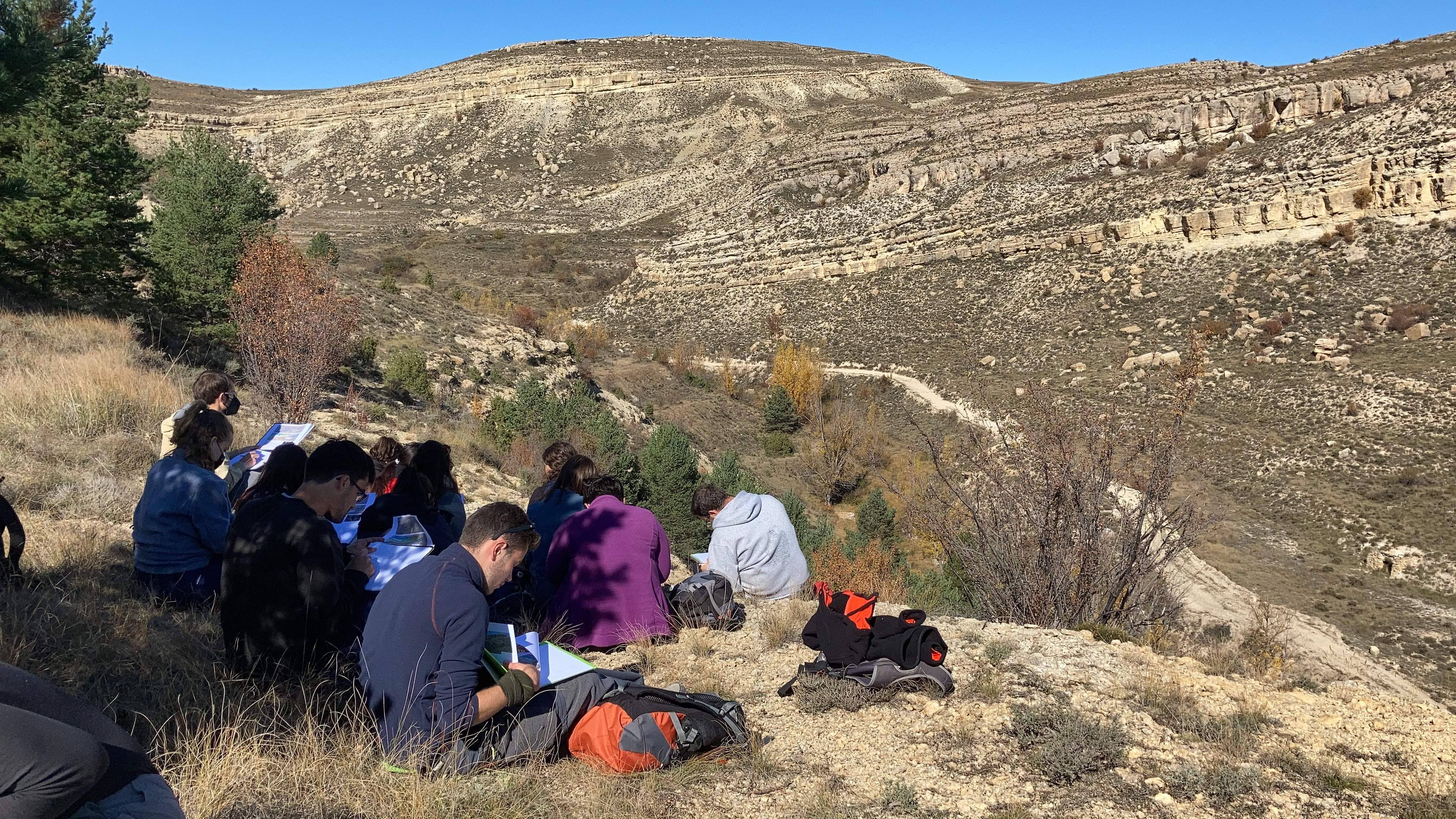
Doctoral students from 15 countries meet in Teruel to learn sedimentology
(Zaragoza. Monday, October 2, 2023). The week of October 9 to 15, the city of Albarracín will host twenty-four students pursuing their doctorate in Geology. These doctoral students will attend the ninth edition of the International School of Sedimentology, an activity sponsored and subsidized by the International Association of Sedimentologists. To select these young researchers […].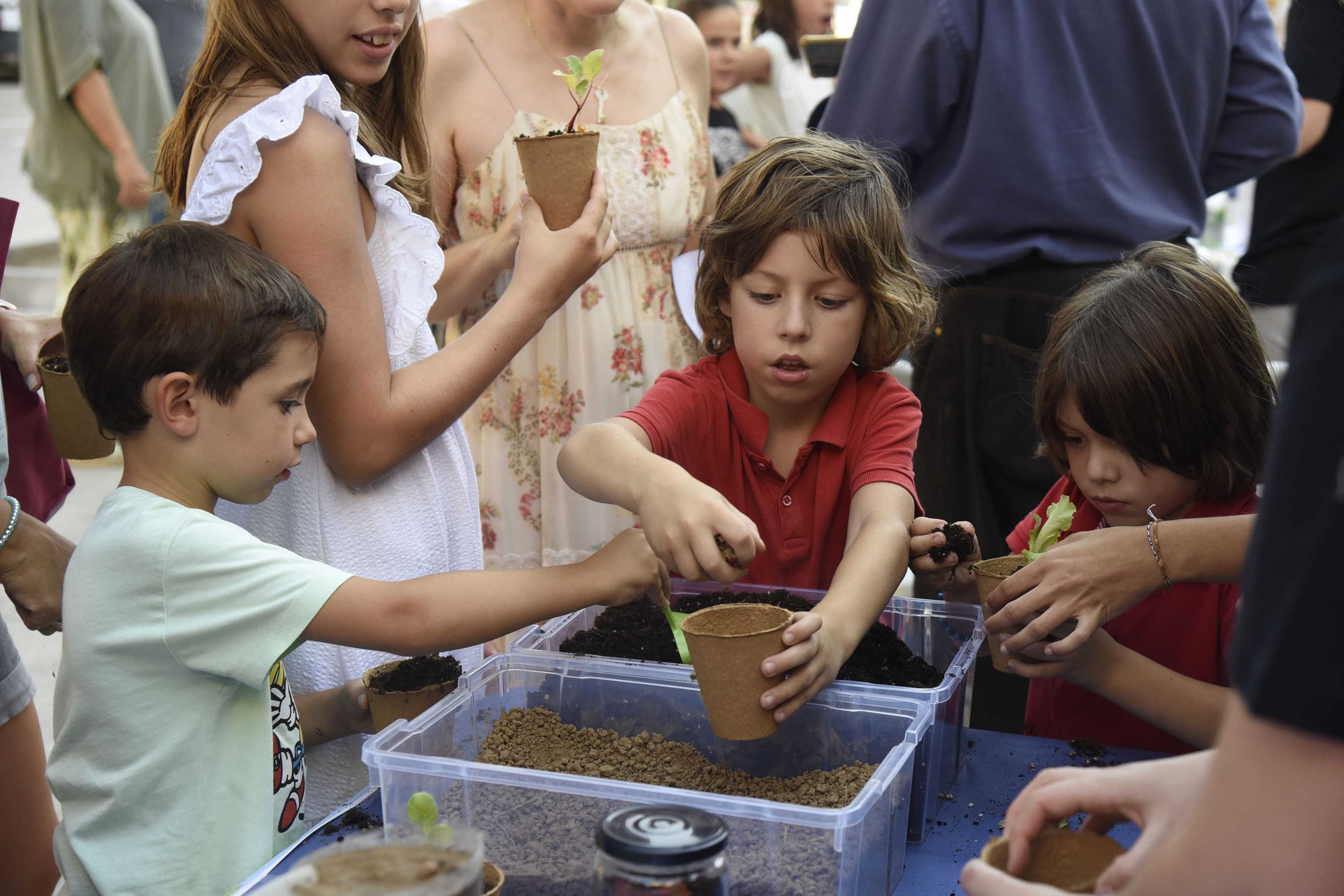
European Researchers’ night 2023
(Zaragoza. Saturday, September 30, 2023). Last Friday, September 29, 2023, the people of Aragon were able to enjoy more than 70 scientific activities at the European Night of Researchers, thanks to the collaboration of 190 researchers from the University of Zaragoza, who brought together experiments, games, talks , walks, coffees and scientific monologues in the […].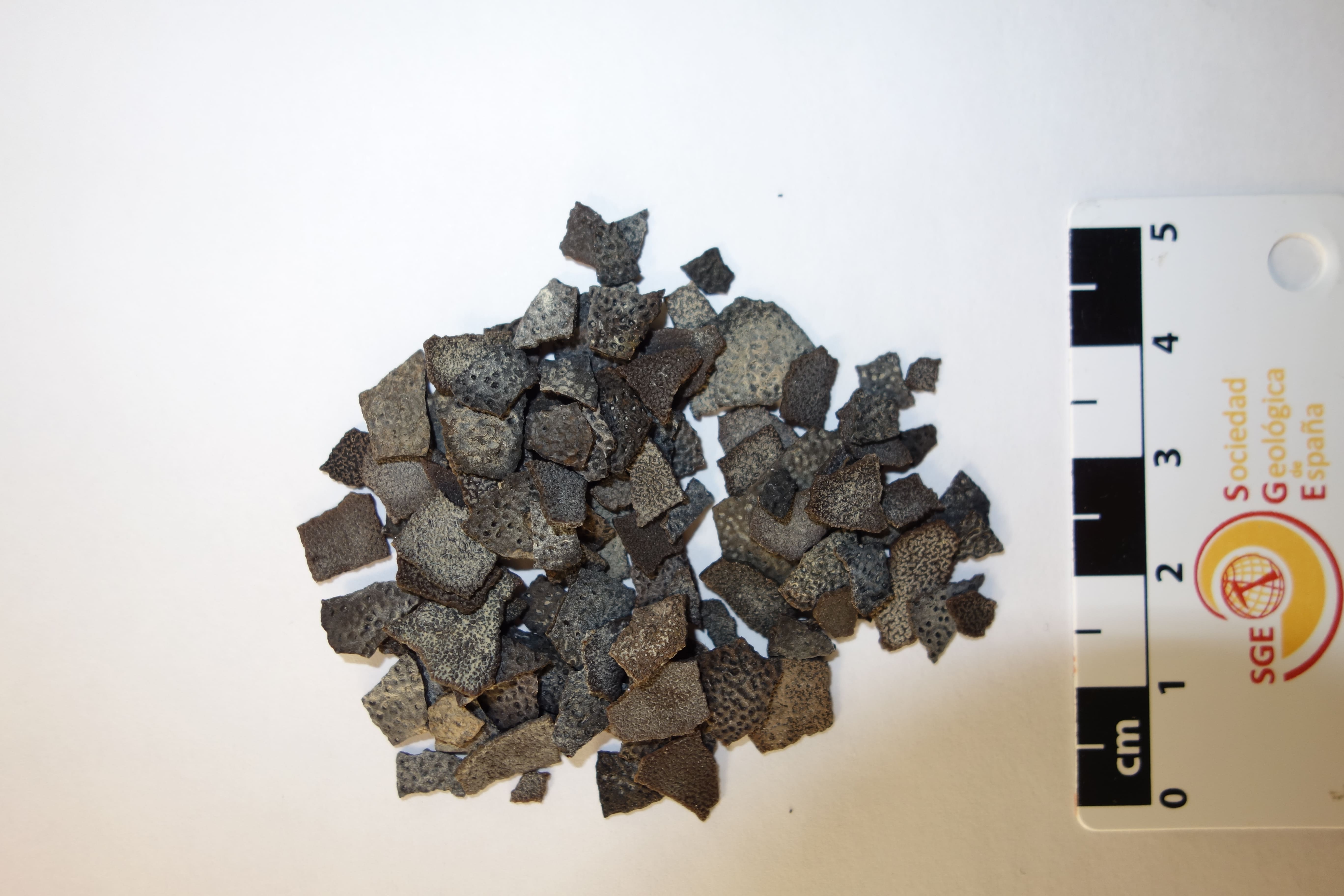
Found a new species of egg shell of the crocodiles that lived with the last dinosaurs of Ribagorza (Huesca)
(Zaragoza, Wednesday, August 31, 2022). A new study carried out by paleontologists from the Aragosaurus-IUCA group of the University of Zaragoza, in collaboration with other researchers from the Nova University of Lisbon and the Institut Català de Paleoecologia Humana i Evolució Social (IPHES), has made it possible to describe a new species of shell crocodile […].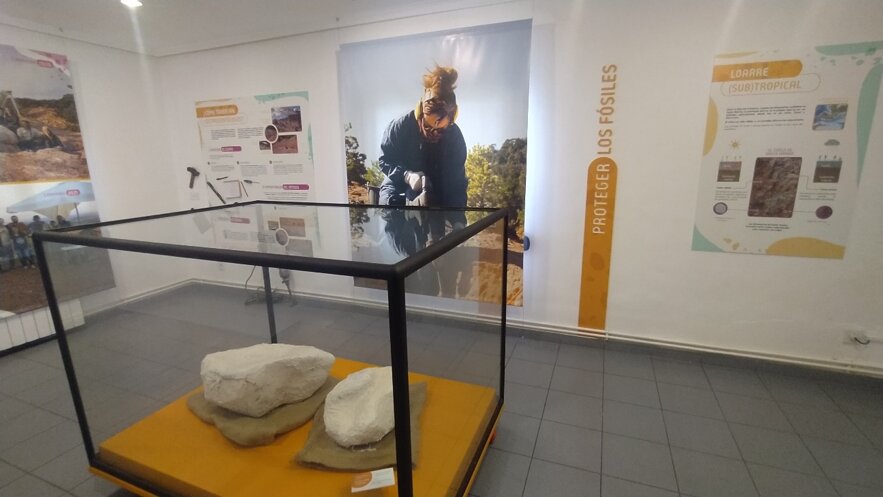
The Paleontological Laboratory of Loarre opens its doors
(Zaragoza/Huesca, Tuesday, August 16, 2022). At the beginning of this month of August, in the town of Loarre (Hoya de Huesca), the Loarre Paleontological Laboratory opened its doors to the public. This center exhibits the fossil dinosaur eggs found in 2019 in the Sierra de Loarre, at the Santa Marina site, and which were excavated […].
| DGA GROUP REFERENCE: | E18_23R |
| YEAR OF CREATION: | 2003 |
| NUMBER OF THESES SUPERVISED (2023): | 1 |
| NUMBER OF PUBLICATIONS (2023): | 68 |
Miembros
- ARRANZ YAGÜE, E.
- BÁDENAS LAGO, B.M.
- BAULUZ LÁZARO, B.
- BOVER ARBÓS, P.
- CANUDO SANAGUSTÍN, J.I.
- CUENCA BESCÓS, G.
- FANLO GONZÁLEZ, I.
- MAYAYO BURILLO, M.J.
- YUSTE OLIETE, A.
- PÉREZ PUEYO, M.
- LAÍTA FLORIÁN, E.
- ALFARO IBÁÑEZ, P.
- AURELL CARDONA, M.
- PÉREZ PUEYO, M.
- TORROMÉ SANZ, D.
- DÍAZ BERENGUER, E.
- MORENO AZANZA, M.
- COLÁS GINÉS, V.
- CASTANERA ANDRÉS, D.
- LARREA MÁRQUEZ, P.
Chief Investigator:
José Ignacio Canudo Sanagustín
Co-chief investigator:
Beatriz Bádenas Lago


